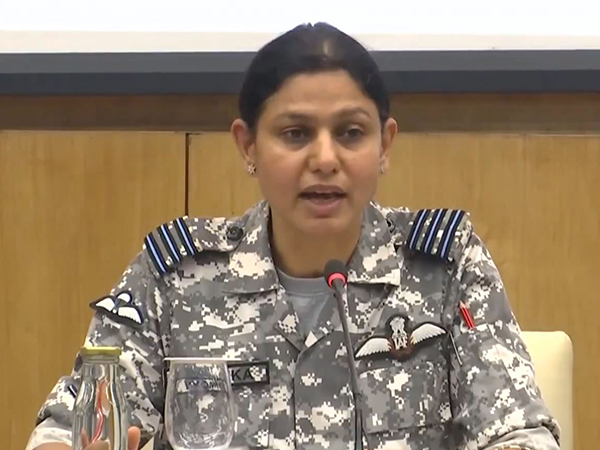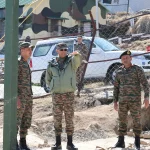In a decisive military action following the deadly terror attack in Pahalgam that left 26 civilians dead, India launched “Operation Sindoor”, targeting nine terrorist camps in Pakistan and Pakistan-occupied Kashmir (PoK). The operation, which was conducted with precision between 1:05 AM and 1:30 AM, aimed to dismantle terrorist infrastructure linked to recent attacks on Indian installations.
Wing Commander Vyomika Singh, a distinguished helicopter pilot with over 2,500 flying hours in the Indian Air Force (IAF), co-led a tri-services media briefing alongside Colonel Sophia Qureshi and Foreign Secretary Vikram Misri. During the briefing, Singh provided an overview of the successful operation, emphasizing the substantial damage inflicted on critical Pakistani air bases, including Skardu, Jacobabad, and Bholari, as well as Pakistan’s air defense weapon systems and radar installations.
“Over the past few days, Pakistan has suffered very heavy and unsustainable losses,” Wing Commander Singh remarked, underscoring the operation’s effectiveness in neutralizing terrorist threats and disabling key offensive and defensive military capabilities across the Line of Control (LoC). Singh emphasized that the strikes were carefully calibrated to minimize collateral damage to civilian areas, reinforcing India’s commitment to conducting measured military actions despite the ongoing threat.
The military operation marks a significant escalation in the enduring tensions between India and Pakistan, drawing comparisons to previous conflicts such as the Kargil War of 1999, when military strikes were similarly launched in retaliation for cross-border terrorism. While the Indian government has made clear its objective of eliminating terrorist infrastructure, it also stressed the importance of regional stability, reiterating that its actions remain focused on neutralizing immediate threats without escalating the broader conflict.
The involvement of high-ranking female officers like Vyomika Singh and Sophia Qureshi at the forefront of this operation underscores the growing role of women in strategic military leadership in India. Singh’s participation in this mission follows her historic involvement in the 2021 all-women mountaineering expedition to Mount Manirang, highlighting the expanding gender diversity within the Indian Armed Forces.
The international community is closely monitoring the situation, given the potential for further escalation in light of the long-standing Kashmir dispute and the nuclear capabilities of both India and Pakistan. While India has reiterated its commitment to combating terrorism, global observers have expressed concern over the long-term impact of such military actions on regional peace and security.
As the situation unfolds, the Indian government remains resolute in its call for national unity and a firm response to terrorism, stressing the need for collective action to safeguard the nation’s security and uphold its sovereignty.













